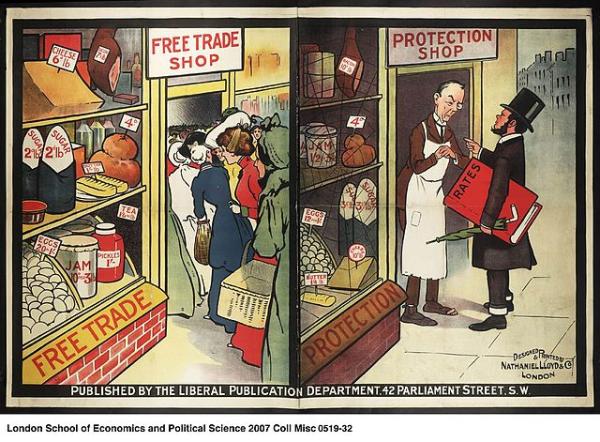Pop quiz! What is the cause of our opioid epidemic?
A. Doctors prescribe too many opioids.
B. The government insisted doctors control pain better
C. Big Pharma created addictive drugs and lied to us
D. Free trade policy
Pencils down, time is up. While variations in the first three responses all may have some culpability, how many of you put down that last choice? A new study in Population Health suggests that our free trade policy did play a role.
Let’s first address how opioid overdoses and free trade may be related. Free trade shifts the manufacture of goods to the cheapest supplier, the Dollar Store, Walmart, and Amazon are built upon that economic principle. But for the country that cannot compete on price, and that would be us in many instances, trade-related job loss closes factories, eliminates middle-class jobs, and as it turns out disproportionately impacts those regions on the US most burdened by opioids’ disruption. The displaced workers, often less-educated, have only short term unemployment benefits for what has become a long term problem. There is also evidence that one way to make ends meet, is to apply for disability benefits; benefits that require a medical examination and are associated with a greater likelihood of being prescribed opioids.
That argument aside, the researchers feel that trade-related job loss has two additional impacts. It eliminates manufacturing jobs that pay relatively well; the closing of local factories ripples through the community and effects not only the directly employed but those that are working in support of the lost jobs, like luncheonettes, grocery stores, the local retail community that gives regions an economic and cultural life. Finally, manufacturing jobs are labor-intensive, they cause aches and pains often treated, rightly or wrongly, with opioids – with no source of income and a medication “habit,” illicit drugs are a convenient substitute.
The study utilized CDC reported opioid deaths from 1999 to 2015 along with Department of Labor data specifically on trade-related job losses. (I too was surprised that such a statistic existed). The data were aggregated at the county level, and the CDC data included whether the deaths were due to synthetic opioids, i.e., fentanyl or its analogs. They found
- Most trade-related job losses were not in the Northeast Rustbelt, but “disproportionately falls on Appalachia [1].
- Appalachia contains 8% of our population, has 16% of our trade-related job losses and 10% of our opioid deaths.
- While opioid deaths increased irrespective of trade-related job losses in every county, it was consistently higher in counties more impacted by trade-related unemployment.
- For every thousand jobs lost, there is a 2.7% increase in opioid overdose deaths; add fentanyl to that equation, and the increase jumps to 11.3%
Of course, this is a population study, individual impacts were not measured, and it is unclear whether these findings reflect alterations on individuals or the community at large. And we need to include the mandatory caveat that the model is incomplete and may under or over-estimate the effects. But it makes two valid points. First, in evaluating what largely has been framed as a medical issue, it may be useful to view the problem as a problem of the social determinants of health rather than solely bad medicine. Second, there is no single cause for most, if not all, our “problems.” THE CAUSE is most often a convergence of several related and unrelated trends that produce a result we have not anticipated and do not welcome.
[1] “a region made up of 420 counties across Alabama, Georgia, Kentucky, Maryland, Mississippi, New York, North Carolina, Ohio, Pennsylvania, South Carolina, Tennessee, Virginia, and West Virginia.”
Source: Free trade and opioid overdose deaths in the United States Population Health DOI: 10.1016/j.ssmph.2019.100409




